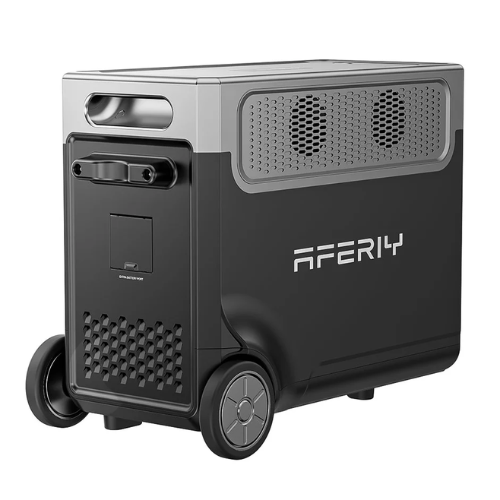
What is a Battery Generator for Home?
A battery generator for home use is a rechargeable energy storage system that provides electricity during outages or when access to the grid is limited. These systems store power in high-capacity lithium-ion or lithium iron phosphate batteries and convert it into usable current through an inverter. When a blackout occurs, the battery generator activates seamlessly, delivering electricity to appliances, lights, medical equipment, and communication devices.
While some people associate generators strictly with gasoline or propane-powered machines, battery-based systems represent a modern alternative that prioritizes convenience and sustainability. They can be charged through the electrical grid, solar panels, or even portable charging systems, making them flexible and adaptable for different households.
Advantages of Using a Battery Generator at Home
The benefits of a home battery generator extend far beyond simple backup power. One of the most notable advantages is silent operation. Unlike noisy gas generators, battery models function quietly, making them suitable for urban areas, apartments, or neighborhoods where noise restrictions apply.
Another key benefit is their eco-friendly design. Since these systems do not rely on combustion, they produce no harmful emissions, making them safer for indoor use and better for the environment. This also eliminates the need to store flammable fuels, reducing risks and maintenance requirements.
Homeowners also appreciate the convenience of instant power. When connected to home circuits, a battery generator activates automatically during an outage, keeping essential devices powered without the need for manual setup. Coupled with renewable energy sources like solar panels, these systems create a sustainable cycle of capturing, storing, and using clean energy.
Battery Generators vs. Traditional Fuel Generators
Comparing a battery generator for home backup with a traditional gas or propane generator highlights significant differences. Fuel-based units often provide higher wattage outputs for running large appliances and multiple systems simultaneously, but they come with noise, emissions, and recurring fuel costs. On the other hand, battery generators may have lower capacity for extremely high-demand needs but excel in providing clean, quiet, and maintenance-free operation.
Additionally, battery models are well-suited for powering sensitive electronics such as computers, smartphones, and medical devices, since they deliver stable electricity without voltage fluctuations. While fuel-powered machines still hold an advantage for extended high-load scenarios, battery-based systems are becoming increasingly capable as storage technologies advance.
Everyday Uses of a Home Battery Generator
The versatility of a battery generator for home makes it a valuable investment across many situations. Families rely on them during storms and blackouts to keep refrigerators running, lights on, and internet routers functional. For those working from home, maintaining computers and Wi-Fi ensures productivity even during grid failures.
In homes with renewable energy systems, battery generators store excess electricity generated during the day for nighttime use, reducing reliance on utility companies and lowering energy bills. For individuals with medical needs, backup power ensures critical equipment like oxygen concentrators and CPAP machines remain operational during emergencies.
Choosing the Right Battery Generator for Home
Selecting the right residential battery generator depends on power requirements, storage capacity, and intended use. Smaller units are ideal for powering communication devices, lighting, and small appliances, while larger models can support refrigerators, sump pumps, televisions, and even partial HVAC systems.
Lithium-ion and lithium iron phosphate batteries dominate the market due to their efficiency, long lifespan, and compact size. Homeowners should also consider charging options—whether through grid electricity, portable solar panels, or hybrid solutions—for maximum flexibility. The ability to expand capacity by linking multiple units is another feature worth exploring for households with higher energy needs.
Maintenance and Longevity
One of the most attractive aspects of owning a home battery backup generator is its minimal maintenance compared to fuel-based alternatives. There are no oil changes, spark plugs, or carburetors to worry about. Routine care usually involves keeping the unit in a temperature-controlled environment, monitoring charge cycles, and occasionally updating the system’s software. With proper care, most battery generators can last ten years or more, offering thousands of charge-discharge cycles before significant capacity loss occurs.
The Future of Battery Generators for Home Use
As renewable energy adoption grows, the role of battery generators for home is expanding. Advancements in battery chemistry, increased storage capacities, and faster charging capabilities are making these systems more powerful and accessible. Integration with smart home systems allows users to monitor energy consumption, optimize charging, and automate transitions during outages.
The combination of solar panels with home battery storage is creating self-sufficient households that are less reliant on centralized grids. This shift not only supports individual energy independence but also contributes to broader environmental goals by reducing reliance on fossil fuels.
Conclusion
A battery generator for home offers more than just a safeguard against blackouts—it represents a step toward energy independence, sustainability, and convenience. Quiet operation, zero emissions, and seamless integration with solar power make these systems a superior alternative to traditional fuel-powered generators for many households. As technology continues to advance, battery generators are becoming more efficient, affordable, and capable of supporting modern energy demands. For homeowners seeking peace of mind, reliability, and long-term value, investing in a home battery generator is a smart choice that ensures both comfort and preparedness in any situation.